Self-identifying as a trans* organization that fights for LGBTQ rights and human rights, Istanbul LGBTI Solidarity Association formed in 2007 in response to experiences of transphobia.
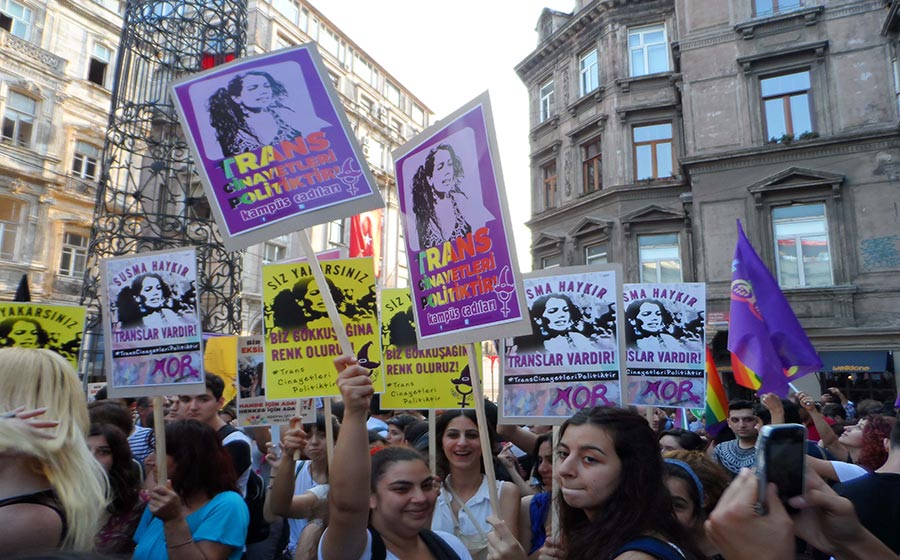
Self-identifying as a trans* organization that fights for LGBTQ rights and human rights, Istanbul LGBTI Solidarity Association formed in 2007 in response to experiences of transphobia in larger LGBT groups and out of a need to provide a space that recognized how gender identity, class and ethnicity interacted with sexual orientation. Their core activities include providing legal and social support to LGBT people who experience discriminatory or violent policing practices, monitoring transphobic hate crime cases, conducting street actions to protest human rights violations and raise awareness of trans* issues, engaging in broader movement advocacy to include SOGI protections in Turkey’s constitution, and providing trans-sensitive sexual health and psychosocial counseling. They recently supported production of a documentary film “Trans X Istanbul,” which was presented at the Istanbul International Film Festival in international competition section and won a Special Mention/Face Award. The film was used to launch a campaign against transphobic hate crimes and hate speech called the “We need a law!” campaign. Launched on Trans Day of Remembrance, 70 people from 7 cities mobilized and marched together to the parliament in Ankara. In 2013, they launched the “Trans* Guest House Project,” which continues to serve as a transitional home for queer and trans* asylum seekers from Syria, Iran, Iraq and refugees from inner Turkey.
Founded in 2010, the Queer African Youth Network (QAYN) is a queer feminist organization working to build a vast network of Support to Promote the well-being and security of LGBTQ people in West Africa and Cameroon.
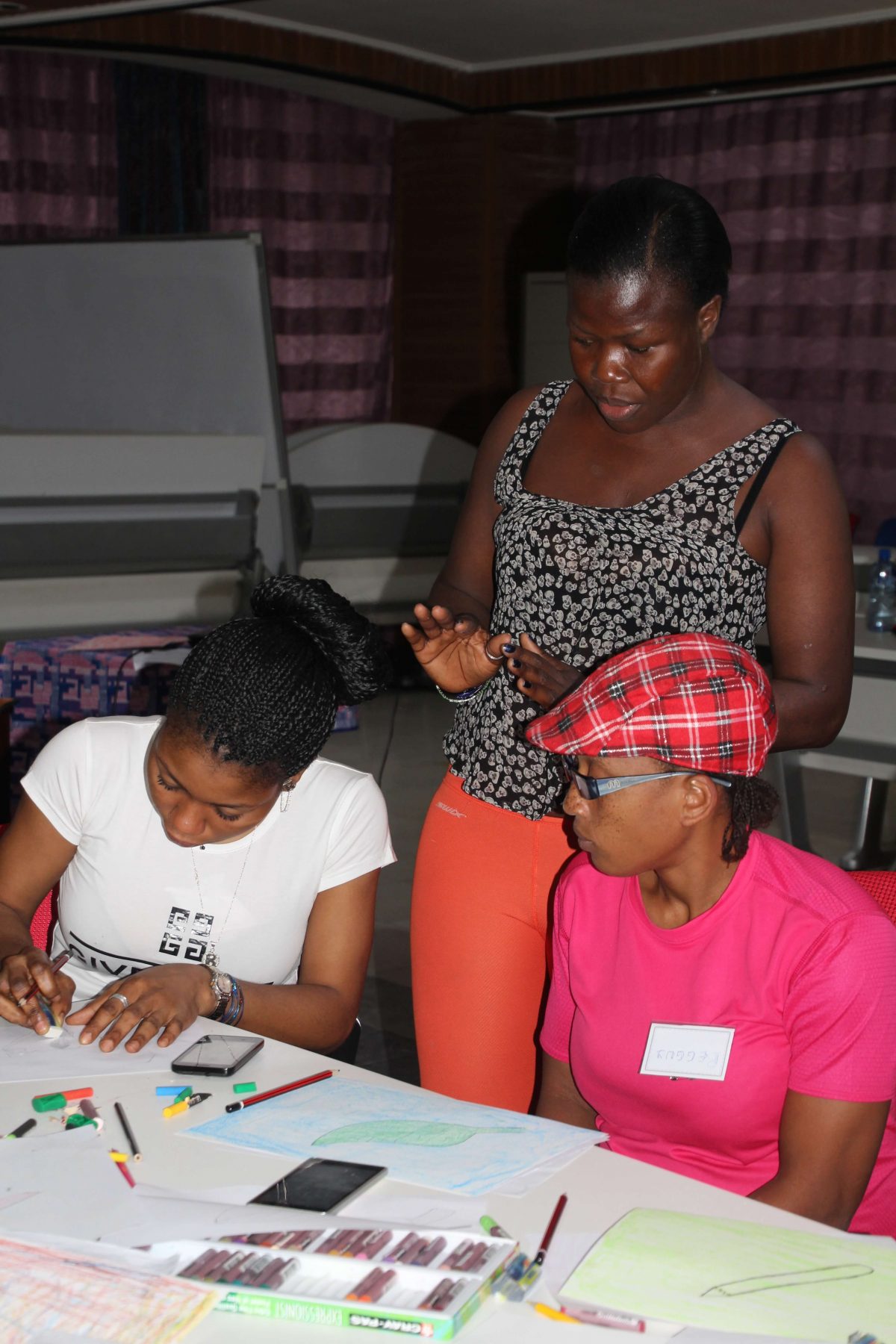
Founded in 2010, the Queer African Youth Network (QAYN) is a queer feminist organization working to build a vast network of Support to Promote the well-being and security of LGBTQ people in West Africa and Cameroon. Their work has grown to focus more broadly on facilitating and strengthening the agency and leadership of young queer women in the West African LGBTQ movements, particularly in Francophone countries. Since inception, QAYN has been instrumental in broadening the base of LBT leadership, facilitating young activist’s access to space, skill-building, and advocacy platforms. Their work is central to their capacity building programs. Their Activist School has been running since 2012. This leadership incubator program brings together activists from across the area to build collective understanding, analysis and strategies to inform Their activism. In addition, QAYN uses their publications, cultural activism, and efforts to position LGBTQ activism in a broader social justice context. Between 2015 and 2016, QAYN, in partnership with Alternative AFRO-Benin and Cote d’Ivoire, organized a series of groundbreaking cross-movement exchanges bringing together social justice and LGBTQ activists. These convenings Followed QAYN’s work to research and publish Mapping of the Social Justice Movement in West Africa and Cameroon: Perceptions on LGBTQ Issues. In 2014, they also produced a beautiful social media campaign titled 16 Voices, 16 Experiences: Queer African Women Talk about Violence, which consisted of a collection of audio stories in French and illustrations. They are now working on a picture campaign Visibility and Expression and a series of video interviews committed to building visibility around LBT activism in Francophone West Africa and Cameroon. Their Q-Zine, the only bilingual pan-African LGBTQI arts and culture digital magazine, is now in its 5th year of publication. QAYN’s goal is to provide an inspiring and creative outlet for LGBTQI and queer Africans and allies to celebrate, debate, and explore the creativity and cultural richness of queer life in Africa.
***
Fondée en 2010, le Queer African Youth Network (QAYN) est une organisation féministe queer qui travaille à construire un vaste réseau de soutien pour promouvoir le bien-être et la sécurité des LGBTQ en Afrique de l’Ouest et au Cameroun. Leurs travaux se sont concentrés plus largement sur la facilitation et le renforcement de l’agence et du leadership des jeunes femmes queer dans les mouvements LGBTQ d’Afrique de l’Ouest, en particulier dans les pays francophones. Depuis sa création, QAYN a contribué à élargir la base du leadership LBT, à faciliter aux jeunes activistes l’accès à l’espace, à la formation des compétences et aux plates-formes de plaidoyer. Ce programme d’incubation de leaders rassemble des militantEs de toute la région afin de construire une compréhension collective, des analyses et des stratégies pour informer leur militantisme. En outre, QAYN est reconnu pour ses publications, son activisme culturel et ses efforts pour placer l’activisme LGBTQ dans un contexte de justice sociale plus large. Entre 2015 et 2016, QAYN, en partenariat avec AFRO-Bénin et Alternative Côte d’Ivoire, a organisé une série d’échanges de mouvements croisés qui réunissent la justice sociale et les militants LGBTQ. Ces rencontres ont suivi les travaux de QAYN pour la recherche et la publication de «Cartographie du mouvement de justice sociale en Afrique de l’Ouest et au Cameroun: Perceptions sur les questions LGBTQ». En 2014, ils ont également produit une belle campagne sur les médias sociaux intitulée «16 voix, 16 expériences: Les femmes queer africaines parlent de la violence», qui consistait en une collection d’histoires audio en français et en illustrations. Maintenant, une campagne photo, «Visibilité et Expression» et une série d’interviews vidéo contribuent à renforcer la visibilité autour du militantisme LBT en Afrique de l’Ouest francophone et au Cameroun. Q-Zine, le seul magazine panafricain des arts et de la culture LGBTQI, magazine numérique bilingue maintenant en 5e année de publication, est l’objectif de QAYN de fournir un point de vente inspirant et créatif pour les LGBTQI et les alliés Africains pour célébrer, débattre et explorer la créativité Et la richesse culturelle de la vie queer en Afrique.
Coalition Advocating for Inclusion of Sexual Orientation (CAISO) is a coalition of individuals and groups connected to LGBT communities in Trinidad and Tobago.
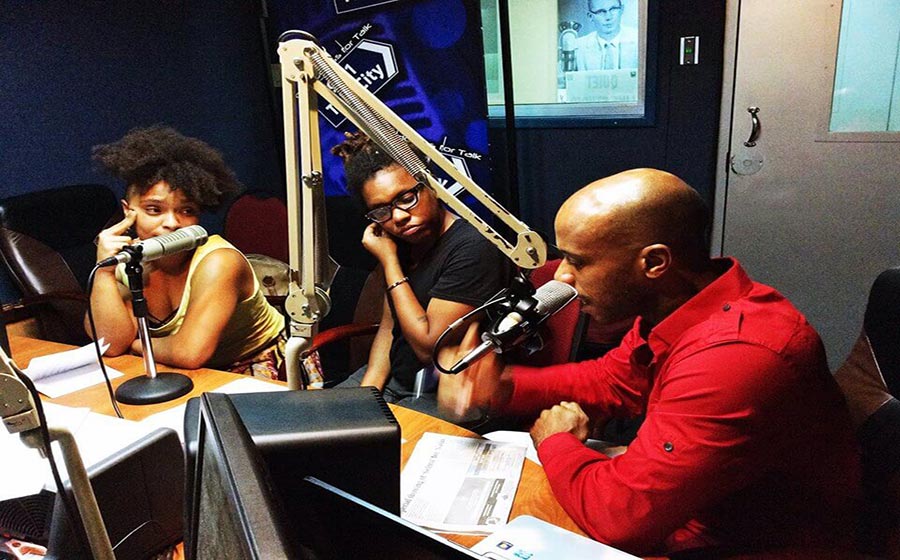
Coalition Advocating for Inclusion of Sexual Orientation (CAISO) is a coalition of individuals and groups connected to LGBT communities in Trinidad and Tobago. CAISO’s aims are to foster a forward-thinking, visionary and humane approach to sexual orientation and gender identity; secure full inclusion in all aspects of national life, social policy and citizenship; develop capacity, leadership and self-pride in communities; and mobilize an advocacy movement for social justice. CAISO has participated in Trinidad and Tobago’s constitutional reform process, advocating for human rights protections. The organization provides legal and psychological accompaniment to LGBT members who experience human rights violations, and engages in ‘everyday lawyering’ with the long-term goal of building up documentation for a decriminalization case. They also use popular education and a ‘wholeness and justice’ approach to engage LGBT community members in healing past trauma, building resilience and taking collective action.
GALANG was formed in 2008 by a small group of lesbian activists who saw that the LGBT sector in the Philippines was predominantly middle-class.
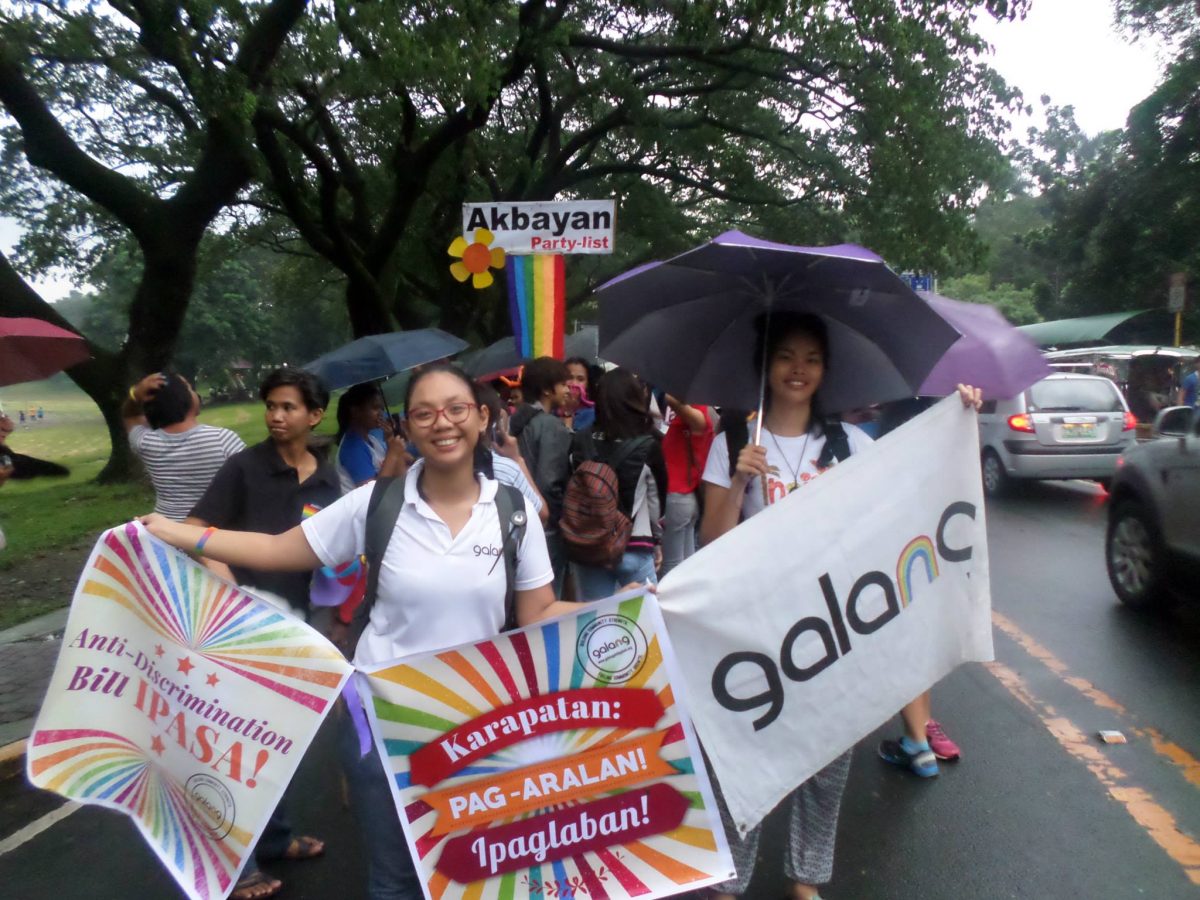
GALANG was formed in 2008 by a small group of lesbian activists who saw that the LGBT sector in the Philippines was predominantly middle-class. Given the realities observed on the ground, the group decided to establish an organization that could be a catalyst for the empowerment of Filipino lesbians, bisexual women, and trans men (LBTs) in urban poor communities to attain social and economic equity, and create an enabling policy environment. GALANG helped establish four (4) LBT people’s organizations with members living in seven (7) depressed areas/barangays (villages) of Quezon City. GALANG continuously works with LBT organizations as its partners, and recently expanded its scope of work to include heterosexual families and friends of LBT members. GALANG aims to support a cohort of LBT community members who can mobilize their peers around sexual and LBT human rights; create new/strengthen grassroots organizations of urban poor LBTs; support urban poor LBTs to access technology and skills development trainings, and to use these skills in gaining employment or engaging in income generating activities; get village development councils and local community leaders to issue statements of support promoting LBT human rights; and promote Filipino research and advocacy work on the intersections of sexuality and poverty.
Santamaría Fundación focuses its work on the idea of self-determination.

Santamaría Fundación was founded in 2005 by four trans women who had witnessed the death of one of their friends as a result of lack of access to health services. Today, Santamaría Fundación has ten years of experience in fostering the leadership of transgender, transgender and transvestite people in Cali, the fourth largest city in Colombia and one with one of the highest levels of transphobic hate crimes. They also works with migrants who come to Cali in search of opportunities. Santamaría Fundación focuses its work on the idea of self-determination. It provides legal support for trans women, implements holistic health strategies and campaigns, and advocates for policies with local and national governments. Santamaría Fundación’s current strategies include laying the groundwork for a campaign for a gender identity law; Documenting human rights violations through its “Observatory” program on human rights; Monitor the police; Raise the visibility of LGBT people and build alliances with other social movements; And organize the annual march for sexual and gender diversity in the Pacific region in Cali. *** En Español*** Santamaría Fundación fue fundada en 2005 por cuatro mujeres trans que habían sido testigos de la muerte de una de sus amistades como resultado de la falta de acceso a servicios de salud. Hoy, Santamaría Fundación tiene diez años de experiencia fomentando el liderazgo de mujeres trans, personas transgénero y travestis en Cali, la cuarta ciudad más grande de Colombia y una con uno de los niveles más altos de crímenes de odio transfóbicos. También trabaja con migrantes que vienen a Cali en busca de oportunidades. Santamaría Fundación enfoca su trabajo en la idea de la autodeterminación. Ofrece acompañamiento legal para las mujeres trans, implementa estrategias y campañas de salud holística y hace trabajo de defensoría de políticas con gobiernos locales y nacionales. Las estrategias actuales de Santamaría Fundación incluyen sentar las bases para trabajar una campaña por una ley de identidad de género; documentar las violaciones de derechos humanos a través de su programa “Observatorio” de derechos humanos; monitorear a la policía; elevar la visibilidad de las personas LGBT y construir alianzas con otros movimientos sociales; y organizar la marcha anual por la diversidad sexual y de género en la región del Pacífico en Cali.
Sayoni was founded in 2006 by six women from diverse backgrounds, age, economic status and ethnicities.
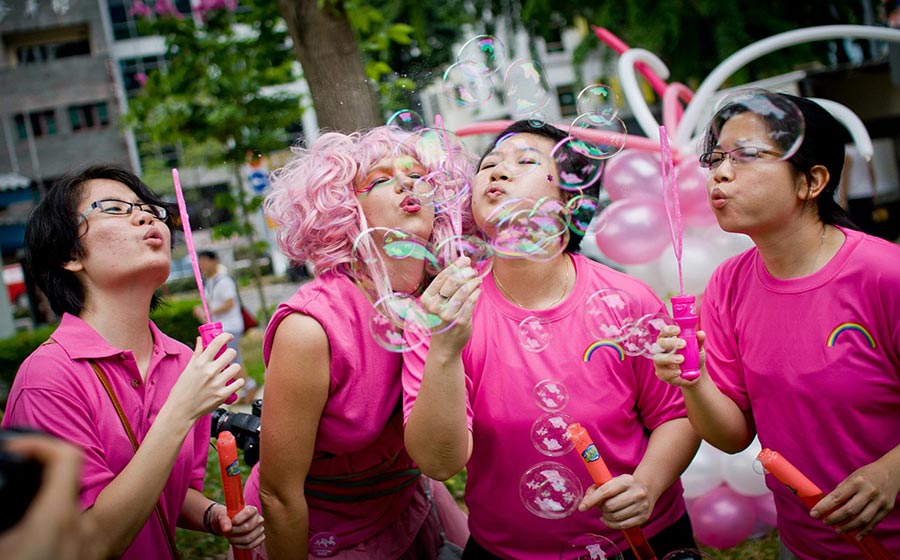
Sayoni was founded in 2006 by six women from diverse backgrounds, age, economic status and ethnicities. They came together to increase queer women’s leadership in social justice activism and the advancement of LGBT rights. They engage in a variety of strategies, from hosting public forums and cultural organizing for “Indignation,” Singapore’s Pride Month, advocacy with state institutions, increasing representation of LGBTQ issues in the media, using UN mechanisms, regional advocacy, to research and advocacy on LGBT rights . Taking a explicitly rights based approach to activism, they often work with broader civil society groups to assert the recognition of LGBTQ lives and communities in the context of wider social and political goals. Similarly within the LGBTQ movement, they resist ‘single issue and identity-based politics’ and raise the visibility of LBT communities. In 2016, Sayoni launched a highly popular activism event called “Human Writes,” which brings together participants from all walks of life to compete in a spoken word competition on a range of human rights themes. At the regional level, Sayoni is an active member of the ASEAN SOGIE Caucus and along with the Chinese Lala Alliance, is hosting a South-South learning hub to share skills and train LGBTQ communities on using treaty bodies like CEDAW and CRC to make changes back in their respective countries.
Saint Lucia’s first and only LGBT organisation, United and Strong Inc. was formed in response to the HIV/AIDS epidemic.
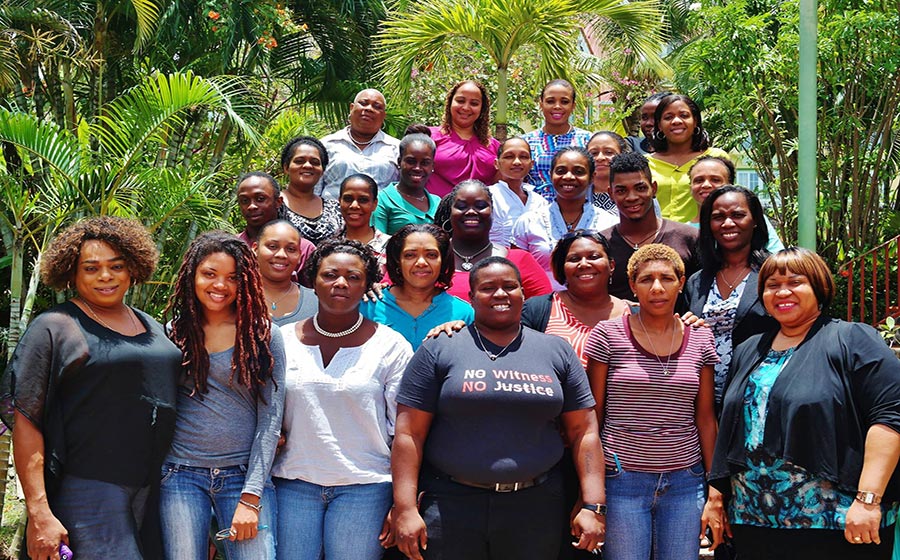
Saint Lucia’s first and only LGBT organisation, United and Strong Inc. (U&S) is a non-profit human rights organization formed in 2001 and registered in November of 2005 in collaboration with the Caribbean AIDS Alliance and AIDS Action Foundation in response to the HIV/AIDS epidemic. Its aim was to reach men sleeping with men; however U&S has always worked actively with women sleeping with women. United and Strong foundation is to build and provide an enabling environment for the advancement of human rights of the LGBT community in Saint Lucia. Our main goal as a community is to advocate for the human rights of all persons, to encourage respect and acceptance for diversity; eliminate stigma and discrimination while creating a just society where everyone is equal; not just in words but in actions.
United and Strong provides legal resources and psychosocial accompaniment to LGBT members who have experienced human rights violations. Apart from advocacy, the organization also conducts education sessions, trainings, human rights documentation, and local/regional advocacy and media to raise awareness about the human rights of LGBT people. United and Strong serves as the ILGA Women’s Secretariat.
UHAI is Africa’s first indigenous activist led and managed fund for and by sex workers and sexual and gender minorities.
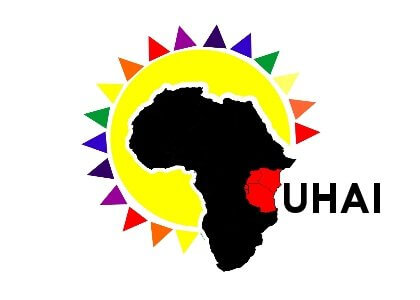
UHAI is Africa’s first indigenous activist led and managed fund for and by sex workers and sexual and gender minorities. UHAI believes in African activists’ voice in resourcing the struggle for equality, justice and dignity for Africa’s sex workers and sexual and gender minorities. UHAI is changing the narrative of how Africa’s human rights and health struggles are resourced from one of ‘foreign assistance’ to one of ownership and self-determination by the very activists who live the struggles. UHAI supports civil society organising for and by sex workers and sexual and gender minorities in Burundi, the Democratic Republic of Congo, Ethiopia, Kenya, Rwanda, Tanzania and Uganda with flexible and accessible grants; capacity support; support for Pan-African advocacy and organising (including support for activist-led convening); and research and documentation. Over the last 7 years, UHAI has made US$6 million in grants to Eastern Africa’s sex workers and sexual and gender minorities. Eastern African activists themselves determine most of these grants. UHAI has provided multi-year capacity support to more than 50 community organisations; supported numerous Pan-African advocacy engagements and convening; and contributed to the repertoire of knowledge on Eastern Africa LGBTI and sex worker human rights and health. UHAI just concluded a landscape analysis of the context in which Eastern Africa’s trans, intersex and gender non-conforming communities organise and exist. The analysis shares information on five thematic focus areas: legal environment, public discourse, health, lived realities and organising landscape.
Founded in 2007, the Grupo Latinoamericano de Estudio, Formación y Acción Feminista (GLEFAS) is a leading regional group that is initiating important dialogues, conversations, and political actions within the feminist and lesbian feminist movement.
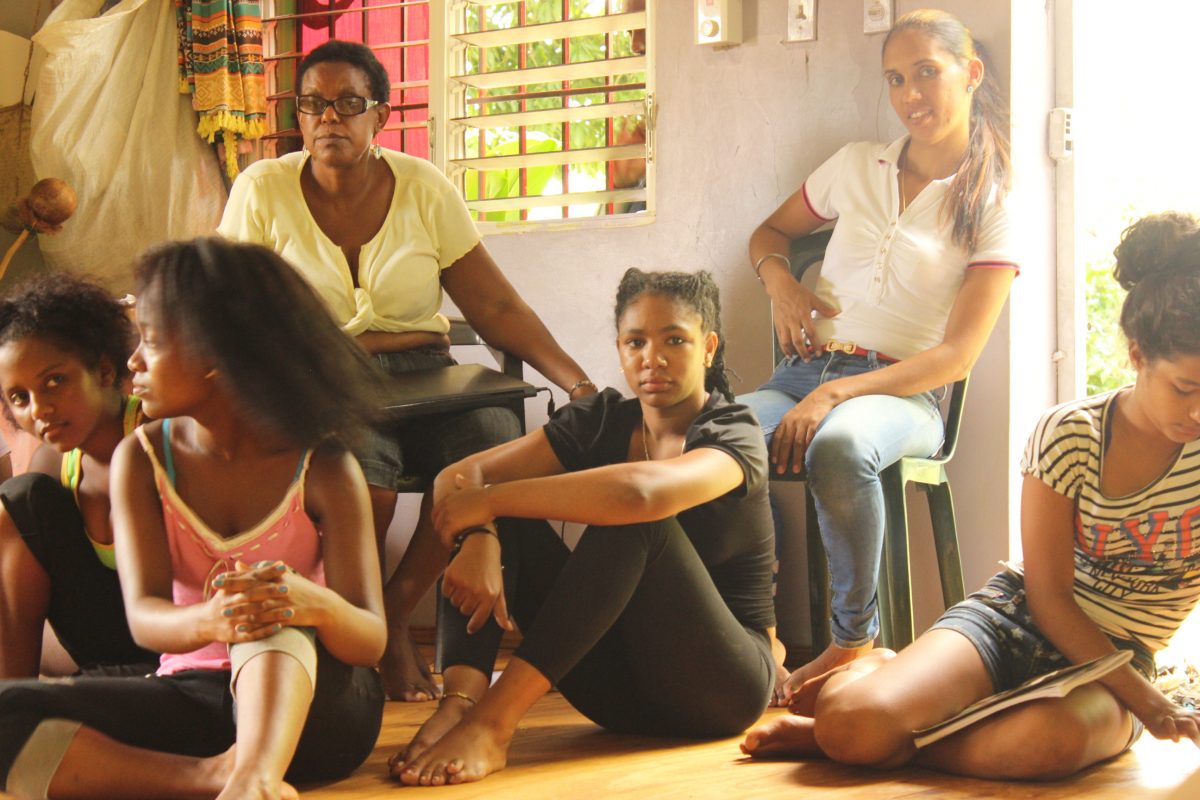
Founded in 2007, the Grupo Latinoamericano de Estudio, Formación y Acción Feminista (GLEFAS) is a leading regional group that is initiating important dialogues, conversations, and political actions within the feminist and lesbian feminist movement in Latin América and the Caribbean, as well as other social movements and land struggles in the region, looking to join efforts for more comprehensive policies to confront different forms of oppression. As Caribbean and Latin American anti-racist and decolonial feminists, one of their goals is to produce autonomous knowledge from their own positioning as black, indigenous, and lesbian activists from the South. They collaborate with non-white and mixed-race women (or women of color, as it is commonly used in the United States) who are committed to intersectional politics and views in Argentina, Colombia, Guatemala, Honduras, Costa Rica, Peru, Dominican Republic, Mexico, Ecuador, Brazil, the United States, and Europe. In response to the regional context of war, militarization, and violence, GLEFAS seeks to produce a political analysis from an anti-racist, anti-military, anti-colonial, anti-capitalist, feminist lesbian perspective. GLEFAS seeks to support the creation of collectives in different countries of the region. *** En Español*** Fundado en 2007, el Grupo Latinoamericano de Estudio, Formación y Acción Feminista (GLEFAS) es un grupo regional líder que está iniciando importantes diálogos, conversaciones y acciones políticas dentro del movimiento feminista y lésbico feminista de América Latina y el Caribe, así como con otros movimientos sociales y de luchas territoriales en la región en la búsqueda de aunar esfuerzos para políticas más integrales que impliquen enfrentar diferentes formas de la opresión. Una de sus metas como feministas antirracistas y descoloniales latinoamericanas y caribeñas es producir un conocimiento autónomo desde sus propios posicionamientos como activistas lesbianas, indígenas y negras del sur. Colaboran con mujeres no blancas y mestizas comprometidas con una mirada y una política interseccional (o de color, como se dice comúnmente en Estados Unidos) en Argentina, Colombia, Guatemala, Honduras, Costa Rica, Perú, República Dominicana, México, Ecuador, Brasil, Estados Unidos y Europa. En respuesta al contexto regional de guerra, militarización y violencia, GLEFAS busca producir un análisis político desde una perspectiva feminista y lésbica antirracista, antimilitarista, anticolonial y anticapitalista. GLEFAS busca apoyar la formación de colectivos en diferentes países en la región.
Founded in 2005, Lesbian Independent, Feminist and Socialist Lesbian (LIFS) has been a grantee partner of Astraea since 2008.
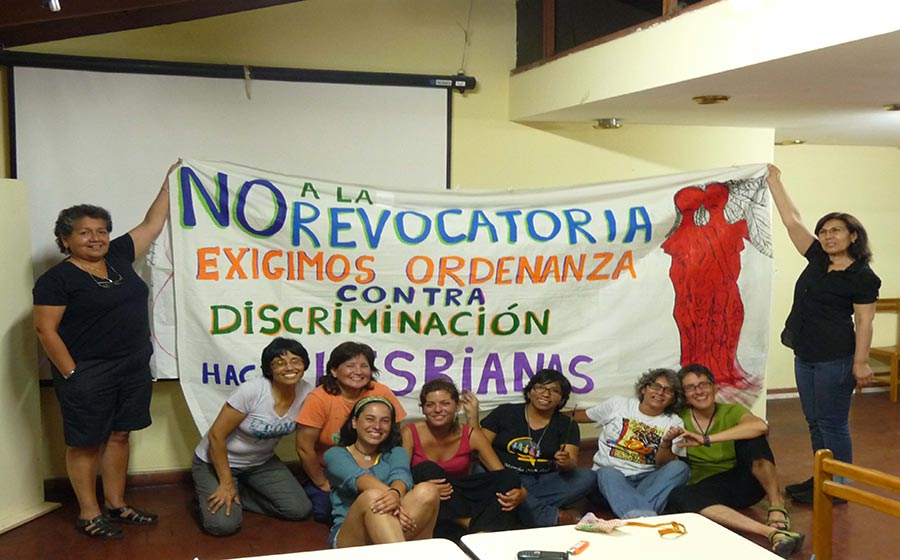
Founded in 2005, Lesbian Independent, Feminist and Socialist Lesbian (LIFS) has been a grantee partner of Astraea since 2008. LIFS is one of the oldest lesbian organizations in Peru. It is well-known and well-connected with the Peruvian feminist movement and over the years has created a voice in policy advocacy spaces such as the Ministry of Women. It believes that policy changes have to be accompanied by feminist transformations and, to this end, it organizes forums with young lesbians to provide feminist political education, works in coalition with LGBT and non-LGBT organizations, and one of its primary goals is to create networks. It also has a well-known “Batukada Lesbian Feminist Voices Les,” which is a type of grassroots political protest in the Latin American and Caribbean region, in which members go out to rallies and protests with drums and sing popular songs that are adapted to convey political messages. *** En Español*** Fundada en 2005, Lesbianas Independientes, Socialistas y Feministas (LIFS) ha sido co-parte de Astraea desde 2008. LISF es una de las organizaciones lésbicas más antiguas de Perú. Es bien conocida y está bien conectada con el movimiento feminista peruano y a través de los años ha creado a una voz en espacios de defensoría de políticas como el Ministerio de la Mujer. Cree que los cambios de políticas tienen que estar acompañados por transformaciones feministas y, para este fin, organiza foros con lesbianas jóvenes para brindar educación política feminista, trabaja en coalición con organizaciones LGBT y no LGBT, y una de sus metas primordiales es crear redes. También tiene una muy conocida “Batukada Lésbica Feminista Voces Les”, la cual es un tipo de protesta política de base en la región de Latinoamérica y el Caribe, en la cual las personas miembro salen a mítines y protestas con tambores y cantan canciones populares con líricas adaptadas para transmitir mensajes políticos.











